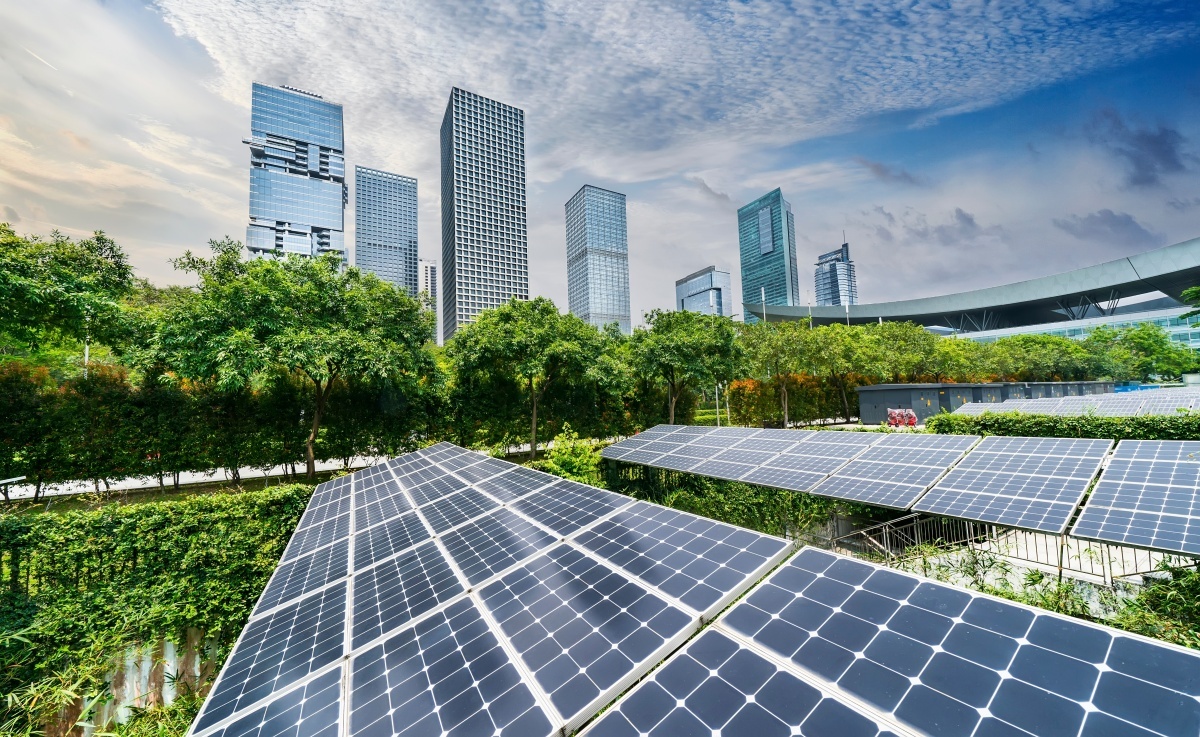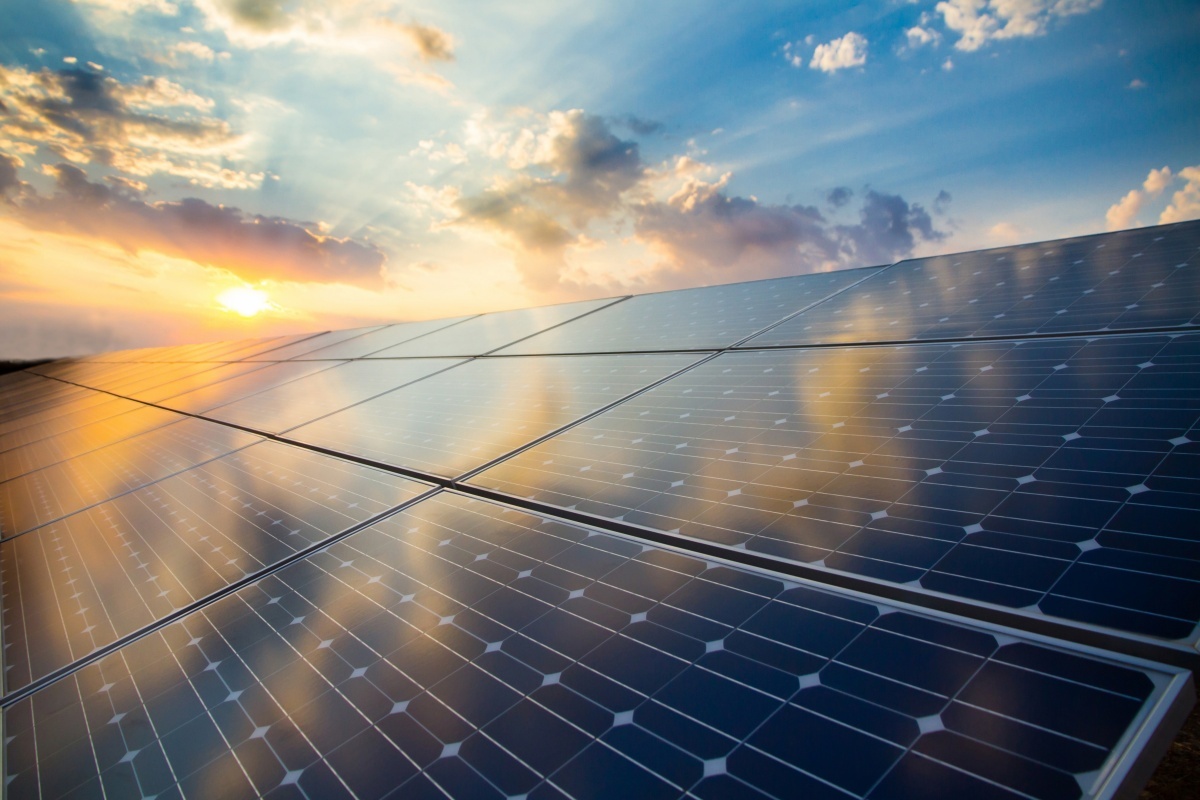Climate Change
Challenges and Opportunities
The escalating severity of climate change and its widespread impacts on the environment, economy, society, and quality of life present significant risks. These include potential disruptions to supply chain, increased operating costs due to extreme weather events, and reduced agricultural yields that affect commodity prices. These challenges impact the business operations with partners, consumer purchasing power, and business competitiveness. Additionally, resource consumption and energy usage in the business sector are key contributors to pollution and greenhouse gas emissions, which accelerating the climate change. At the same time, communities face health issues, displacement due to natural disasters, and heightened inequalities, particularly in areas lacking proper infrastructure.
Nevertheless, climate change also presents opportunities for Central Retail to develop sustainable practices, such as integrating innovations into supply chains, advancing environmentally friendly products, and fostering inter-organizational collaboration. Global frameworks such as the Paris Agreement and the United Nations Framework Convention on Climate Change (UNFCCC COP) underscore the importance of reducing greenhouse gas emissions and transitioning to a low-carbon economy. These efforts are crucial for achieving shared global sustainability goals.
Central Retail recognizes the urgency and importance of addressing climate change and, in response, has established clear short-term and long-term greenhouse gas reduction targets. These include reducing Scope 1 and Scope 2 greenhouse gas emissions by 30% by 2030 and achieving net-zero greenhouse gas emissions by 2050. This commitment reflects Central Retail’s adaptability and readiness to address climate change while conducting business that prioritizes shared value creation for stakeholders and fostering sustainable growth in the long term.
Management Approach
Climate Governance
Central Retail has assigned the Corporate Governance and Sustainability Committee, Executive Management, the Environment Committee, and Sustainable Development Working Team to govern and manage climate change-related issues. Their responsibilities include deploying strategy and action plans, implementation, monitoring, and evaluation. Additionally, the Risk Policy Committee and the Risk Management Working Team are responsible for overseeing and managing climate-related risks. Central Retail ensures the agenda on climate change management take place at least annually.
| Corporate Governance and Sustainability Committee |
|
| Risk Policy Committee (RPC) |
|
| Executive Management |
|
| Environment Committee |
|
| Sustainable Development Working Team |
|
| Risk Management Working Team |
|
Climate Change Management Framework
Central Retail has established the ReNEW strategy to drive all business units toward achieving net-zero greenhouse gas emissions across the group by 2050 (Scope 1 and 2). To ensure compliance with national and international regulations, requirements, and standards, Central Retail has established a climate change management process aligned with frameworks including the Task Force on Climate-related Financial Disclosures (TCFD) and the IFRS S2 Climate-related Disclosures Standard. The approach encompasses policy and strategy development, risk and opportunity assessment, implementation, monitoring, evaluation, and reporting.
1. Policy and Strategy
Central Retail has set a short-term target to reduce greenhouse gas emissions by 30% by 2030 (Scope 1 and 2), and a long-term goal to achieve net-zero emissions by 2050 (Scope 1 and 2). To guide its efforts in emission reduction and climate change adaptation, Central Retail has developed the Decarbonization Roadmap. Additionally, the ReNEW Strategy, which serves as Central Retail’s environmental strategy, has been established to minimize environmental impacts from business operations while ensuring compliance with national and international laws, regulations, and standards.
2. Risk and Opportunity Assessment
Assessing climate-related risks and opportunities is a crucial process that enables Central Retail to prepare and adapt its strategies to evolving circumstances. Central Retail evaluates physical risks, such as floods, heatwaves, and increasingly severe natural disasters, as well as transition risks, including policy and regulatory changes and shifts in market behavior. Additionally, Central Retail identifies opportunities such as the development of green technologies, access to green financing, and changing consumer preferences toward sustainable products. Including analyzing potential impacts and developing appropriate response measures for Central Retail.
3. Implementation
Central Retail undertakes projects to effectively reduce greenhouse gas emissions, including investments in modern technologies and equipment to enhance energy efficiency, promoting the use of renewable energy such as solar power and electric trucks, and improving infrastructure to adapt to climate change. Additionally, Central Retail supports nature-based solutions through reforestation projects and sustainable agricultural land restoration in collaboration with local communities, such as agroforestry and regenerative agriculture, to reduce the impacts of climate change throughout the supply chain. Furthermore, Central Retail promotes energy conservation awareness by conducting employee trainings and fostering engagement with stakeholders, including partners, customers, and government entities, to drive continuous and sustainable collaborative efforts.
4. Monitoring, Evaluation, and Reporting
Central Retail collects and monitors greenhouse gas emissions data across Scope 1, 2, and 3, in accordance with The Greenhouse Gas Protocol (GHG Protocol) standards. It also analyzes impacts and evaluates progress against targets. Additionally, Central Retail reports its climate management performance in line with international standards, such as the Task Force on Climate-related Financial Disclosures (TCFD) guidelines and the IFRS S2 climate-related disclosure standards.
The Task Force on Climate-Related Financial Disclosures (TCFD) Report 2024
Project Highlights
Solar Rooftop Installation
Central Retail is committed to using clean energy and promoting sustainable and environmentally friendly business practices. As part of this commitment, Central Retail therefore has installed solar cell systems on the rooftops of shopping malls and distribution centers to reduce greenhouse gas emissions and energy costs. In 2024, Central Retail has successfully completed the installation of solar cell systems at 160 locations. In Thailand, 137 sites were equipped with solar cells, covering various business units, including Robinson Lifestyle Centers, Central Department Stores, Robinson Department Stores, Tops Supermarkets, GO Wholesale, Thai Watsadu, and distribution centers. In Vietnam, 23 locations were equipped with solar cells, covering business units such as GO! Shopping Centers, Mini GO! Supermarkets, and Lan Chi Mart. This project generates 166,565 MWh of renewable energy annually, reducing greenhouse gas emissions by 86,580 tCO2e and saving energy costs of over 647 million baht per year.
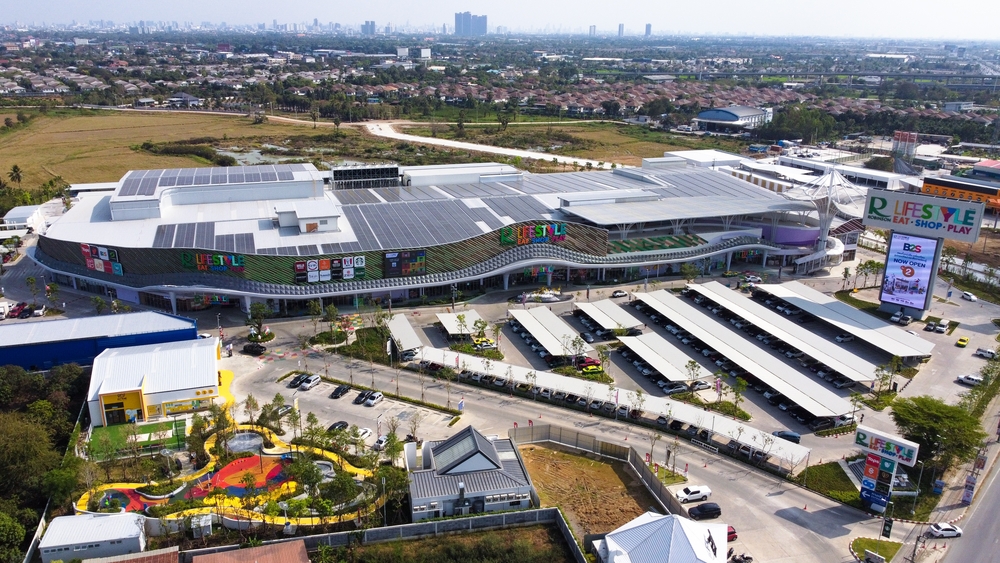
Sustainable Transportation and Logistics
Central Retail promotes the use of clean energy electric vehicles in logistics operations. Central Retail has deployed 28 electric trucks covering the Central Department Store Distribution Center, Tops Distribution Center, and Thai Watsadu Distribution Center. Additionally, 48 electric motorcycles are used for product distribution from the GO Wholesale center to customers. These efforts have resulted in a reduction of diesel fuel consumption by over 661,806 liters per year, leading to decrease in greenhouse gas emissions by approximately 1,740 tCO2e annually. Moreover, Central Retail supports and facilitates the use of electric vehicles for employees and customers by installing EV charging stations at shopping malls and department stores in both Thailand and Vietnam. As of 2024, Central Retail has established 63 EV charging stations, capable of simultaneously accommodating 795 electric vehicles. These initiatives demonstrate Central Retail’s commitment to promoting clean energy usage, reducing emissions and greenhouse gases, and fostering sustainable mobility in alignment with future trends and environmentally friendly lifestyles.
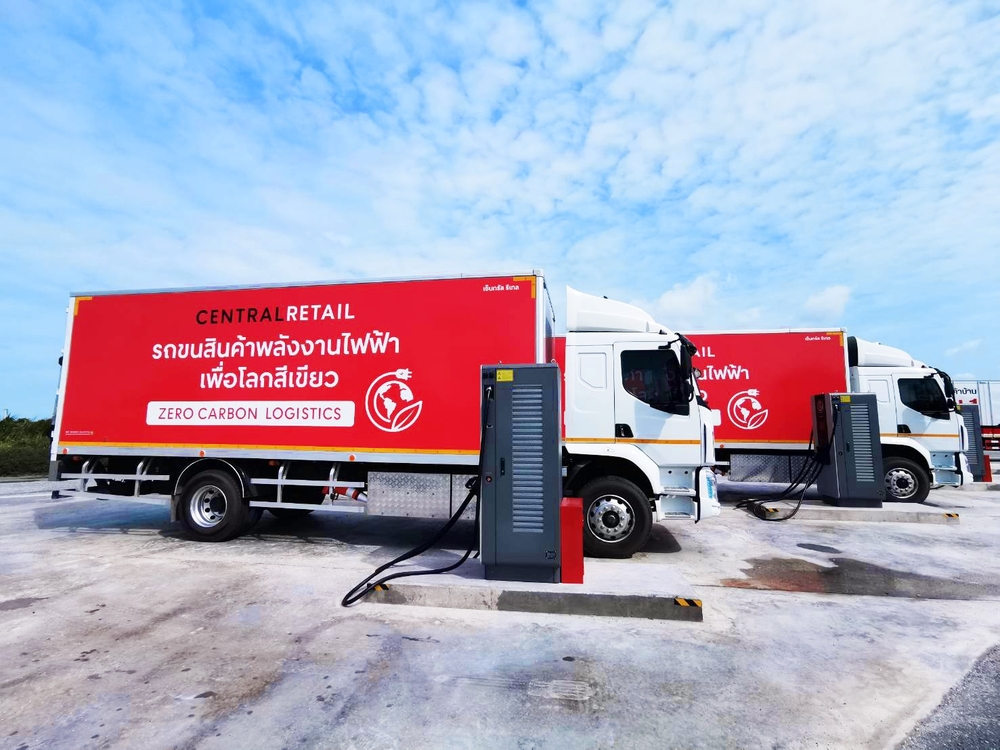
Installation of Chiller Plant Management and Energy Management System
Central Retail has implemented the Chiller Plant Manager System (CPMS) and the Energy Management Information System (EMIS) to enhance the efficiency of air conditioning systems in shopping malls. These technologies monitor and manage chillers for air conditioning, while also collecting energy consumption data from various systems, including chillers, lighting, and air conditioning units. This data helps identify high-energy consumption areas, enabling more efficient energy reduction planning. In 2024, Central Retail installed CPMS and EMIS at 10 Robinson Lifestyle Centers, achieving an energy reduction of 2,710 MWh, equivalent to a reduction of 1,355 tCO2e. This initiative also resulted in energy cost savings of approximately 11.4 million baht per year.
Additionally, Central and Robinson Department Stores have implemented the Building Automation System (BAS) at all shopping centers to enhance energy management efficiency and automate building system controls. The BAS technology monitors and manages electrical systems, air conditioning, and chillers in real-time, significantly reducing energy consumption and operational costs.
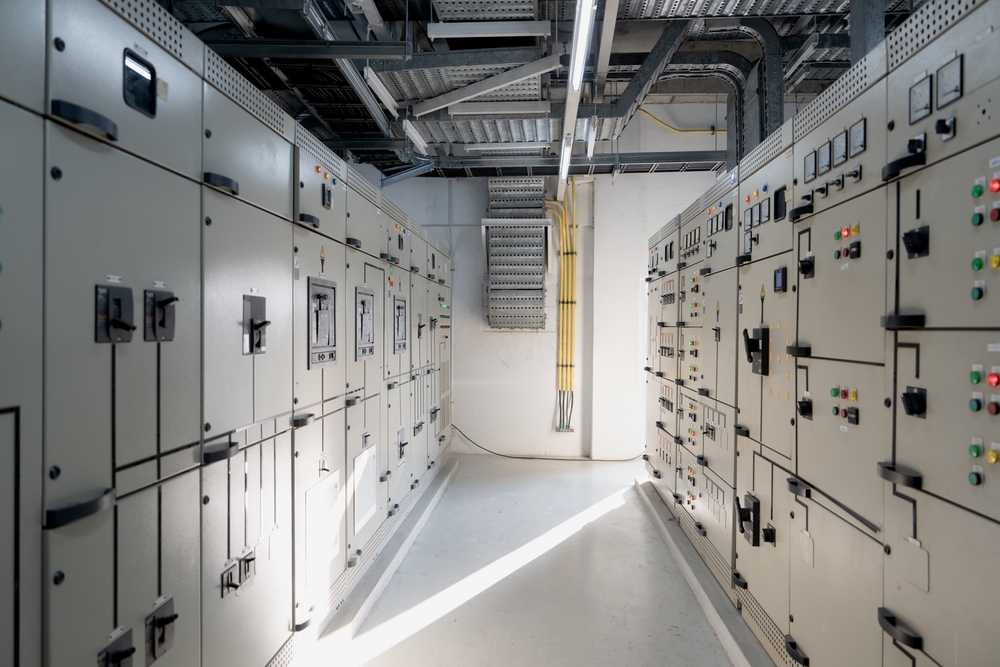
Performance Summary 2024
GHG Emissions
Scope 1 (tonnes CO2e)
Scope 2 (Location-Based / Market-Based) (tonnes CO2e / Baht)
Scope 3 (tonnes CO2e)
GHG Emissions Intensity (Scope 1 and 2) (tonnes CO2e/Baht)
- Data coverage in 2024 covers the business operations in Thailand Vietnam and Italy.
-
Scope 3 Emissions Include:
- Indirect Greenhouse Gas Emissions from Purchased goods and services. (Emissions from the consumption of packaging materials and water usage.)
- Indirect Greenhouse Gas Emissions from Fuel and energy related activities.
- Indirect Greenhouse Gas Emissions from Upstream transportation and distribution.
- Indirect Greenhouse Gas Emissions from Waste generated in operations.
- Indirect Greenhouse Gas Emissions from Business travel.
- Indirect Greenhouse Gas Emissions from Employee commuting.
- Indirect Greenhouse Gas Emissions from Downstream transportation and distribution.
- Indirect Greenhouse Gas Emissions from Leased assets.



